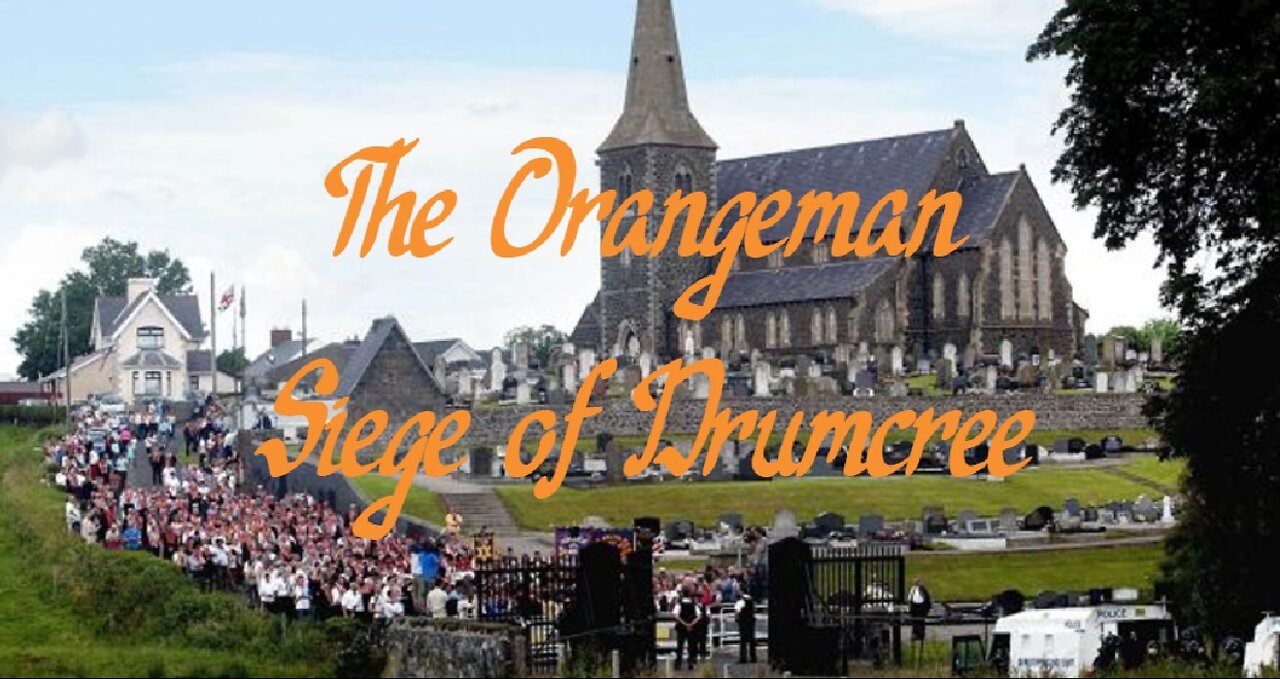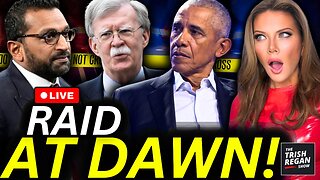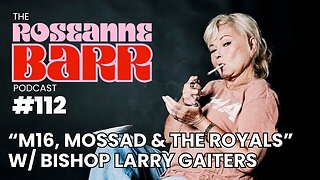Premium Only Content

The Orangeman -- Siege of Drumcree
The Drumcree conflict or Drumcree standoff is a dispute over yearly parades in the town of Portadown, Northern Ireland. The town is mainly Protestant and hosts numerous Protestant/loyalist marches each summer, but has a significant Catholic minority. The Orange Order (a Protestant, unionist organization) insists that it should be allowed to march its traditional route to and from Drumcree Church on the Sunday before the Twelfth of July. However, most of this route is through the mainly Catholic/Irish nationalist part of town. The residents, who see the march as sectarian, triumphalist and supremacist, have sought to ban it from their area. The Orangemen see this as an attack on their traditions; they had marched the route since 1807, when the area was mostly farmland.
There has been intermittent violence over the march since the 1800s. The outbreak of the Troubles led to the dispute intensifying in the 1970s and 1980s. At this time, the most contentious part of the route was the outward leg along Obins Street. After serious violence two years in a row, the march was banned from Obins Street in 1986.
The focus then shifted to the march's return leg along Garvaghy Road. Each July from 1995–2000, the dispute drew international attention as it sparked protests and violence throughout Northern Ireland, prompted a massive police and British Army operation, and threatened to derail the peace process. The situation in Portadown was likened to a "war zone" and a "siege". During this time, the dispute led to the killing of at least six Catholic civilians.
In 1995 and 1996, residents succeeded in stopping the march. This led to a standoff at Drumcree between the security forces and thousands of Orangemen/loyalists. Following a wave of loyalist violence, police allowed the march through. In 1997, security forces locked down the Catholic area and let the march through, citing loyalist threats to kill Catholics if it were stopped. This sparked widespread protests and violence by Irish nationalists. From 1998 onward, the march was banned from Garvaghy Road and the army sealed off the Catholic area with large steel, concrete and barbed-wire barricades. Each year there was a major standoff at Drumcree and widespread loyalist violence. Since 2001, things have been relatively calm, but moves to get the two sides into face-to-face talks have failed.
-
 1:17:08
1:17:08
Kim Iversen
3 hours agoNetanyahu Declares WAR On Algorithms | Zionists Demand Megyn Kelly's Head
26.1K38 -
 LIVE
LIVE
Nerdrotic
4 hours ago $0.32 earnedDisney HATES YOU! But Needs You, James Gunn's Peacemaker, Alien: Earth | Friday Night Tights 368
1,846 watching -
 LIVE
LIVE
Quite Frankly
5 hours ago"Antichrist Summit, Cracker Barrel Syndrome, Friday Extras" ft Matt 8/22/25
323 watching -
 LIVE
LIVE
Wayne Allyn Root | WAR Zone
6 hours agoWAR Zone LIVE | 22 AUGUST 2025
199 watching -
 DVR
DVR
The Trish Regan Show
5 hours agoBREAKING: John Bolton Faces Up To 20 Years in Prison After FBI's Raid At Dawn - Kash Patel's Stunning Move
7.77K4 -
 1:36:29
1:36:29
Roseanne Barr
4 hours ago“MI6, Mossad & The Royals” W/ Bishop Larry Gaiters | The Roseanne Barr Podcast #112
125K53 -
 1:21:15
1:21:15
Sarah Westall
3 hours agoSocrates: 300 Year Cycle of Unprecedented Change after Worldwide War w/ Martin Armstrong
11K2 -
 LIVE
LIVE
xBuRnTx
1 hour agoLIVE - FORTNITE SOLOS - #AdRead
85 watching -
 LIVE
LIVE
Dr Disrespect
7 hours ago🔴LIVE - DR DISRESPECT - WARZONE NUKE IS BACK? - SHOTTY BOYS®
1,012 watching -
 LIVE
LIVE
LFA TV
15 hours agoLFA TV ALL DAY STREAM - FRIDAY 8/22/25
964 watching